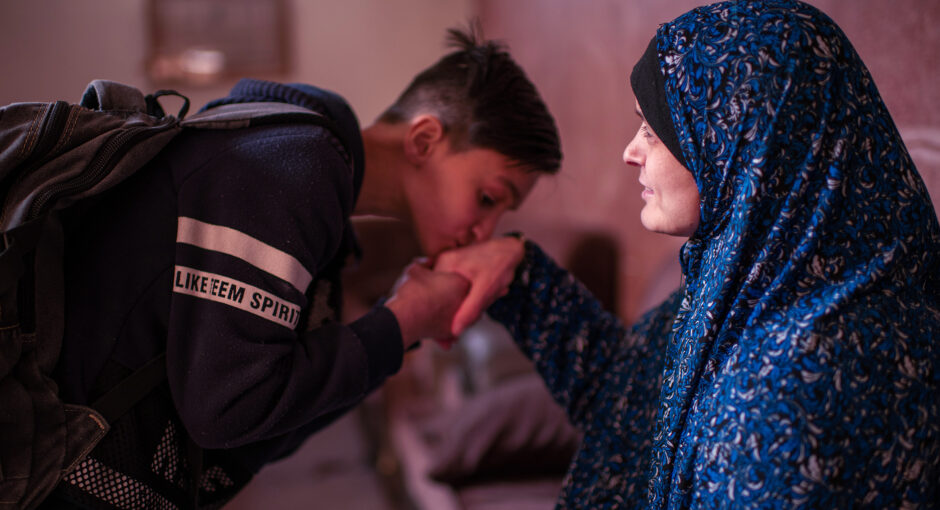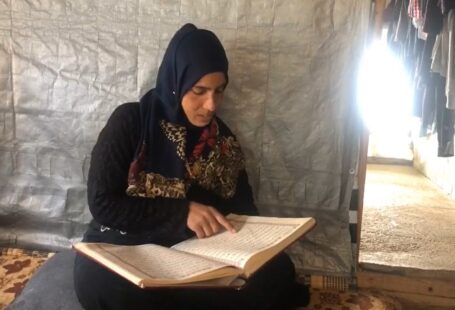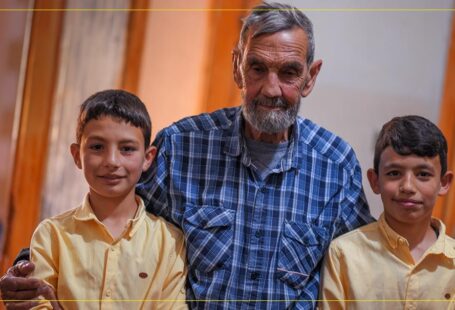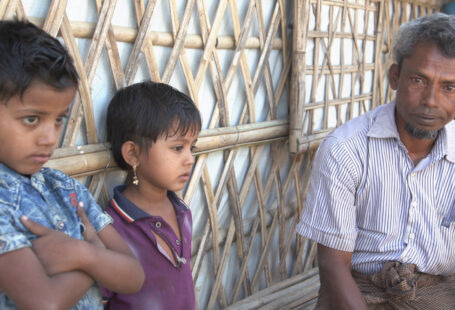First and foremost, UNHCR’s global Ramadan campaign is the organization’s commitment to honor and celebrate the values of more than 60% of its persons of concern, who are, yet another year, observing the holy month away from home. In fact, Ramadan this year is like no other: refugees and internally displaced persons (IDPs) are living an emergency within an emergency and are one of the most vulnerable populations in the face of the global COVID-19 pandemic. Our responsibility towards the people we serve is greater than ever before.
On the evening of the holy month, UNHCR launched its global Ramadan campaign – under the hashtags #EveryGiftCounts #خيرك_يفرق – highlighting the delicate situations of forcibly displaced families, and urging people to imagine the impact of an act of generosity on the lives of refugees and IDPs, especially in light of the current coronavirus public health crisis. The campaign has some powerful faces from various displaced communities around the world, such as Syrian refugees and IDPs, Rohingya refugees, and Yemeni IDPs.
One of the most distinct stories the campaign features is that of Abdullah, a Syrian refugee child in Jordan, who is taking care of his blind mother. The family of Abdullah and his mother are one of millions of vulnerable families that had to flee war and persecution, in search for safety. Abdullah is a reminder of the persons we strive to serve every day, and why UNHCR’s Ramadan campaign is in place: to highlight their realities and struggles, and rally much needed financial support for them through donations, Sadaqah and Zakat.
While Zakat is the 2.5% of one’s wealth and assets, it might, in fact, be someone else’s 100% – this approach should help us imagine the power of Zakat in transforming the lives of the most vulnerable families. In 2019, UNHCR launched the Refugee Zakat Fund, a trusted, compliant and effective distributor harnessing the power of Zakat to assist refugees and IDPs. Last year alone, we have managed to touch the lives of more than 1 million beneficiaries with Zakat funds. This is an impact we are very proud of and yet makes us extremely humbled with the trust and confidence our donors and partners have put in UNHCR to deliver their Zakat to the neediest refugee and displaced families in Jordan, Lebanon, Iraq, Yemen, Mauritania, and Bangladesh.
This year has been quite exceptional for everyone around the world, let alone refugees and IDPs, many of which have been through even harsher events. While we are being asked to stay home, let’s take a moment to think about those who had to flee their homes, and are living in middle to low-income countries. What do they do? Where do they go? And how could they cope in case – God forbid – an outbreak takes place among their communities? Since the announcement of the global pandemic, UNHCR has been gearing up preparedness and response activities, including increased access to healthcare systems and water/ sanitation/ hygiene services, in addition to emergency cash assistance which is quite essential in helping families provide for themselves in light of the economic impact of lockdowns and other measures.
Below are 5 reasons why it is so important to consider refugees and IDPs with your Zakat, Sadaqah and charitable donations this year:
- Why UNHCR: we are responsible for the protection and assistance of more than 70 million refugees and IDPs around the world, including the most vulnerable (such as widows and orphans) in hard-to-reach areas such as Bangladesh and Yemen.
- Strategic impact: we are fully accountable towards our donors and partners, and we promise to make the most effective use of your donation to preserve the dignity of the families we serve.
- 100% Zakat distribution policy: based on 5 fatwas that govern UNHCR’s approach to Zakat, the Refugee Zakat Fund was launched last year to channel 100% of Zakat donations to eligible families, without deduction of any wages or fees (which are covered from other sources of funding for UNHCR).
- Zakat eligibility: the majority of today’s refugees and IDPs fall under at least 4 of the 8 categories of Zakat recipients, they are poor, needy, in debt, and in many cases are ‘stranded travelers’.
- Coronavirus emergency: this year your Zakat will have a double impact, it won’t only assist vulnerable families in meeting their immediate needs (rent, food, medicines, etc), but it will be their only lifeline to resiliently cope with the economic impact of lockdowns. Even the very few refugees and IDPs who had the opportunity to access informal daily-wage jobs, are now facing increased hardships without any income to support their families and children.
Imagine what your Zakat/ Sadaqah/ donation can do for a refugee family today.
Giving.unhcr.org/Ramadan
Zakat.unchr.org
Thank you and stay safe.











Social Profiles